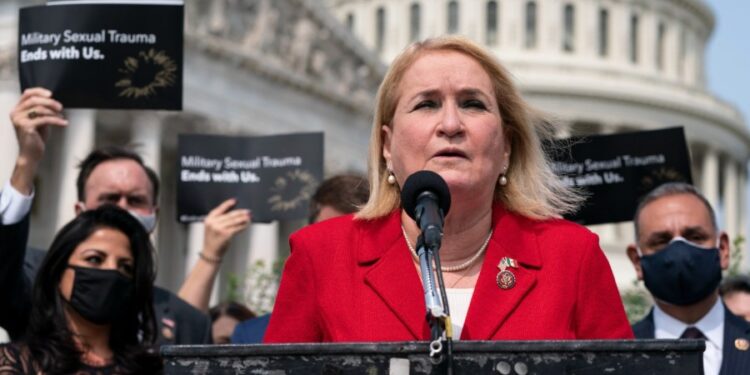
States receiving federal funding for foster care and adoption assistance programs would be required to prohibit certain surgeries for foster children born with intersex traits under legislation introduced Monday by Rep. Sylvia Garcia (D-Texas).
Garcia’s Protect Intersex Children Act would bar physicians from performing genital surgeries on a foster child younger than 6 years old born with intersex traits, or natural variations in sex characteristics that differ from what is typically considered male or female. The bill carves out an exception for procedures that address “an immediate risk to life.”
In a statement, Garcia called the measure “a crucial first step toward empowering intersex children and supporting an often-overlooked community.”
“Every child deserves to grow up feeling safe, loved, and valued for who they are—not subjected to unnecessary medical procedures that take away their autonomy and identity,” she said. “This is about protecting children from harm and ensuring they have the chance to make decisions about their own bodies when they’re ready.”
Most advocacy groups estimate that up to 1.7 percent of people are born intersex, although the actual number is difficult to pin down. Hospitals aren’t required to track how many infants are born with intersex characteristics, and there has never been a nationwide survey on intersex people done by the U.S. Census Bureau, the National Institutes of Health or another government agency that collects demographic information, The Associated Press reported last year.
Roughly 1 in 2,000 infants born with intersex traits demonstrate enough physical difference for doctors to recommend surgery, according to Human Rights Watch, an international research and advocacy group.
“Gender normalizing” surgery, often recommended to make the body appear more in line with social expectations rather than because such intervention is medically necessary, can have lifelong consequences, including gender dysphoria, chronic pain, sexual dysfunction and infertility.
No federal law regulates genital surgeries for intersex youth, and state-led efforts to ban them have been largely unsuccessful. Medical associations and advocacy groups are increasingly asking policymakers to ban such procedures on intersex infants until they can provide informed consent.
Three former U.S. Surgeon Generals who served in both Republican and Democratic administrations called for a moratorium on genital surgery for intersex youth, barring a medical necessity, in 2017. In 2020, Lurie Children’s Hospital in Chicago apologized for performing cosmetic surgeries on intersex infants. The following year, New York City Health & Hospitals, the largest public health care system in the United States, said it would delay “medically unnecessary surgery” on intersex children until they are “of an age to assent/consent.”
In April, the United Nations Human Rights Council adopted a first-of-its-kind resolution supporting the rights of intersex people, including an expression of “grave concern” over interventions performed without “full, free and informed consent.”
“Children with intersex variations have never had sufficient legal protection against violations of bodily autonomy,” said Sylvan Fraser Anthony, legal and policy director at interACT, an organization that advocates for children born with intersex traits.
Intersex youth “are arguably at greater risk than ever,” they said, because state laws that ban gender-affirming care for transgender minors encourage “unnecessary and harmful surgeries on intersex infants and young children through the same legislative instruments.”
“Federal action is needed to preserve bodily self-determination against these deplorable abuses of state power,” Anthony said.
Garcia’s bill is endorsed by the Congressional Equality Caucus, Advocates for Trans Equality, the Houston Intersex Society and the Greater Houston LGBTQ+ Chamber of Commerce. There are 21 Democratic co-sponsors.







